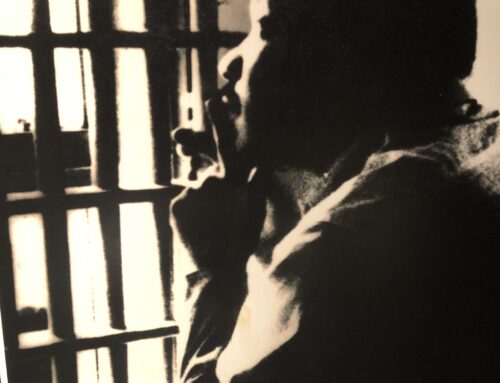We lived in a small town. I knew nothing of high rises, traffic jams, or crime rates, but when I visited my uncle, aunt, and cousins who lived on a farm, I was a city slicker. One tradition my uncle had whenever I visited was to take me by the hand, fold up my pinky finger, and squeeze. He called it “milking my mouse.” It created unbearable pain in my soft, scrawny hand, but I was committed to overcome my city slicker reputation. So I took it until I could take it no more. That is when I cried “uncle.”
With that one word of surrender, my uncle showed mercy, and an immediate rush of relief filled my life, and we all had a good laugh—especially my uncle. “Milking my mouse” was a farmer’s way of showing affection to his young nephew from town. As much as it hurt, I knew it was just two family members having fun.
As we read current headlines, however, and watch neighbors become enemies right before our eyes, we discover that our most important relationships are also in danger. They are not threatened by political, racial, or religious differences, but by the unrelenting grip of judgmentalism.
We should make judgments to distinguish between right and wrong. Judgmentalism, however, is not a commitment to truth. Instead it is the refusal to love people who disagree with us or who make different choices than we make. Judgmental people divide over differences and never unite until there is uniformity around their own ideals.
We find “judgmentalists” everywhere. They live on the left and the right, and in religious and secular spaces. They can be intellectual ideologues or dutiful pragmatists. Issues do not make people judgmental. Sin does.
When religious leaders in Jesus’ day caught a woman in the act of adultery, they dragged her into the temple court and asked Jesus to judge her. The judgmentalists were trying to trap Jesus, but He exposed them when He said,
The one without sin among you should be the first to throw a stone at her. John 8:7
With that, the scheduled stoning was cancelled. Jesus did not overlook the woman’s sin. He just showed mercy, and told her to stop. Neither did He overlook the sin of the judgmentalists, but He showed mercy, and called them and us to a new way of relating to fellow sinners.
Judgmentalism makes us quick to point out errors in others, but showing mercy gives them time and space to discover the grace of God. Judgmentalism holds other people hostage to our expectations, but mercy frees all of us to experience the perfections of Jesus.
When my uncle squeezed my pinky, I complained about how unfair it was for him to inflect pain on a ten year old. And it was. I screamed for justice, but what I really needed was mercy.
Rioting in the streets is not helpful. Riffs in our own relationships create problems. But while the riots and riffs scream for justice, perhaps the real need is mercy. Perhaps we can empathize with the pain without endorsing the behavior. Perhaps we can care about the person without compromising our principles. Perhaps we can go the second mile to give our neighbor a second chance.
When the judmentalists dropped their rocks, Jesus did not excuse sin. Instead, He absorbed the consequences of it, so that every sinner present could experience the grace of God. That is still the miracle of mercy—loving people so they just might know the God who already loves them.





